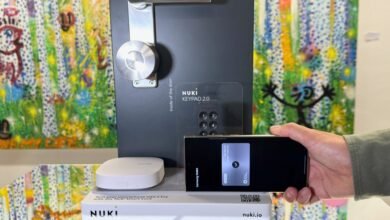Google Opens Gemini Nano AI to App Developers for On-Device Use

▼ Summary
– Google is expected to announce new APIs at I/O to enable on-device AI features using Gemini Nano for mobile developers.
– The updated ML Kit SDK will support on-device generative AI features like summarization, proofreading, and image descriptions without cloud processing.
– Gemini Nano has limitations compared to cloud-based AI, such as shorter summaries (max 3 bullet points) and English-only image descriptions.
– Different versions of Gemini Nano vary in capability, with smaller versions like XXS being text-only and having reduced functionality.
– The expansion of Gemini Nano support to non-Pixel phones (e.g., OnePlus 13, Samsung Galaxy S25) will broaden access to on-device AI features for developers.
Google is expanding access to its lightweight Gemini Nano AI model, enabling app developers to integrate on-device generative AI features directly into their Android applications. This shift marks a significant step toward bringing powerful AI capabilities to smartphones without relying on cloud processing.
New documentation reveals that Google will soon update its ML Kit SDK with APIs supporting Gemini Nano, allowing apps to perform tasks like summarization, proofreading, and image descriptions entirely on the device. Unlike cloud-based AI, which requires sending data to remote servers, this approach enhances privacy and reduces latency. However, there are trade-offs—Gemini Nano’s smaller size means it has limitations compared to its cloud counterpart.
For instance, summaries generated by the model are restricted to three bullet points, and image descriptions currently only support English. Performance may also vary depending on the device, as different versions of Gemini Nano exist. The standard variant, Gemini Nano XS, occupies around 100MB, while the more compact Gemini Nano XXS—found on devices like the Pixel 9a—is just 25MB and limited to text processing with a smaller context window.
This development isn’t exclusive to Google’s Pixel lineup. Phones from Samsung, OnePlus, and Xiaomi—including upcoming models like the Galaxy S25 and OnePlus 13—are already equipped to run Gemini Nano. As adoption grows, developers will have more opportunities to incorporate on-device AI into apps, offering users faster, more private experiences without sacrificing functionality.
By decentralizing AI processing, Google is setting the stage for a future where smartphones handle complex tasks independently, reducing reliance on cloud infrastructure. While current capabilities are modest, the groundwork is being laid for more sophisticated on-device AI in the years ahead.
(Source: Ars Technica)




